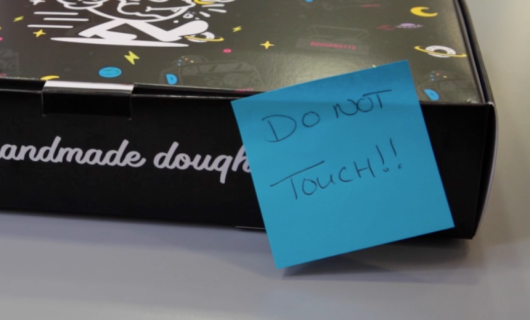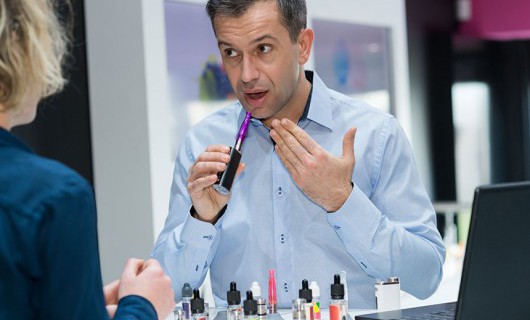
The Art of Reverse Psychology
In this blog, Dr Rachel Langbein digs deeper into reactance theory and how an understanding of it can help you to achieve more effective marketing.
More +Stoptober is the annual NHS-backed stop-smoking campaign that encourages people who smoke to ditch cigarettes during the month of October, with a view to increasing their likelihood of giving up for good. The campaign - which is now in its 11th year - was first launched following promising research suggesting that people who can stay smoke-free for 28 days are five times more likely to quit for good!
This has proven to be the case for some people but why is it not for others? How can an understanding of behavioural science help more smokers ditch cigarettes?

What might start out as pure curiosity or an attempt to 'fit in' to a particular social setting can quickly become a habit that's hard to kick. Tobacco products - including cigarettes - contain nicotine, which is a highly addictive chemical compound. Within seconds of inhaling cigarette smoke, nicotine triggers the release of dopamine in the brain, producing positive emotions (Affect - MINDSPACE). As humans, we are always chasing a 'high' of some sort, or simply want to feel good, and for smokers, it's the nicotine that provides this and keeps them coming back for more.
The negative long-term health effects of smoking tobacco are extremely damaging (e.g., lung cancer, cardiovascular disease, stroke, diabetes, and chronic obstructive pulmonary disease) and many smokers are aware of the risks their habits pose.
Despite a significant downward trend over the last 20 years, recent research has shown that smoking behaviour among under 35's has increased since the beginning of the pandemic. This demographic, in particular, represents a population who could be positively impacted by campaigns like Stoptober, as the earlier in life somebody is able to quit, the lower their risk of developing these long-term health conditions will be.
Giving up smoking is no mean feat. Although some people might be able to go 'cold turkey' and quit overnight, for many it is an up-and-down journey of abstinence and relapse. From a mental perspective, something called cognitive dissonance can have a big part to play in a person's quit journey. For more on Cognitive Dissonance, check out my recent blog explaining reactance, a commonly experienced consequence of cognitive dissonance, particularly among people who smoke.
The Stoptober campaign embeds a number of behavioural theories and frameworks to encourage and motivate people to become, and stay, smoke-free. These include:
Social proof: Often used synonymously with social norms, social proof describes how people tend to copy the actions of others who they look up to or wish to emulate. Stoptober seeks to take advantage of social proof by encouraging smokers to sign up alongside friends, family and colleagues.
SMART goals: Stoptober helps smokers to set goals that are Specific, Measurable, Achievable, Realistic and Time-sensitive by setting a defined quit period of 28 days, which can help smokers to stay motivated.
Commitment devices: Commitment is represented by the C in MINDSPACE and refers to how we strive for consistency in the public promises we make (i.e., we're far more likely to stick to something if we've promised another person that we will do it). Stoptober encourages people to quit alongside their friends, family, and colleagues, making pledges to one another that they'll stick to their goals
PRIME theory: A theory of motivation, PRIME theory stands for Plans, Responses, Impulses, Motives and Evaluations. In short, it assumes that behaviour is determined by several different motivational inputs and that maintaining certain behaviours requires a constant balance of these inputs.
Transtheoretical Model (Stages of Change): People often apply the Transtheoretical Model to smoking behaviour to establish people's readiness to change, categorising smokers into 5 stages: not thinking about quitting at all (pre-contemplation); thinking about quitting (contemplation); Making preparations to quit (preparation); actually starting to quit (action); quitting and remaining smoke-free (maintenance). Stoptober has the potential to influence people at all stages of change (e.g., the campaign messaging might prompt those in 'pre-contemplation' to begin thinking about quitting (contemplation).
If you're interested in Behavioural Science, check out our monthly webinar series, which covers different behavioural theories on the last Thursday of every month at 11am.

In this blog, Dr Rachel Langbein digs deeper into reactance theory and how an understanding of it can help you to achieve more effective marketing.
More +
Are e-cigarettes helping people quit smoking or are people substituting one product for another?
More +Enter your email address below to access the Academy and our Webinars